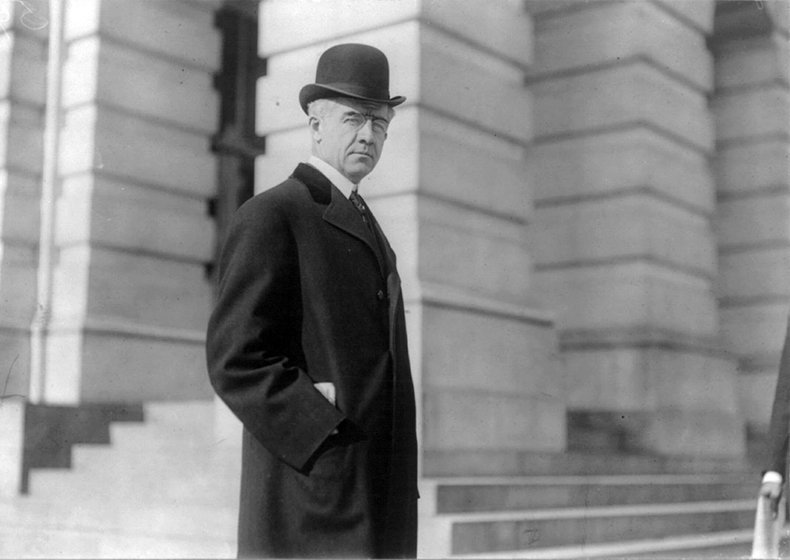Gilbert Monell Hitchcock was born in Omaha, Nebraska on September 18, 1859. His father, Phineas W. Hitchcock, was prominent in Nebraska politics, and served as United States Senator from Nebraska between 1871 and 1877. He was educated in the city’s public schools and for two years attended the gymnasium (high school) in Baden-Baden, Germany.
Upon his return to the United States, he enrolled in the Law College of the University of Michigan, from which he received his law degree in 1881. In the same year, Hitchcock was admitted to the Nebraska Bar, and began practicing law in Omaha.
In 1885, he established the Omaha Daily World, an independent newspaper, and in 1889, purchased the Omaha Herald. These papers were combined to form the Omaha World-Herald, which was first published on July 18, 1889. Hitchcock soon became active in Nebraska politics, and was a supporter of free silver and other policies advocated by William Jennings Bryan. In 1894-1895 Bryan assumed nominal editorship of the World-Herald, which offered a place where he could present his political philosophies.
The Hitchcock family was traditionally Republican. But seeing the plight of western agriculture and farmers in the 1880s, Hitchcock aligned himself with the Democratic-Populists in Nebraska, whose leader was William Jennings Bryan. It was as a “Bryan man” that Hitchcock was elected in 1902 to the U.S. House of Representatives, where he served from 1903 to 1905 and from 1907 to 1911. During that time, he supported the establishment of a postal savings bank, and took an active part in an investigation of coal land frauds. That event resulted in the removal of the Secretary of the Interior. In 1910, he was elected to the Senate and served for two terms (twelve years).
In the Senate, Hitchcock showed considerable independence from the Woodrow Wilson administration. In1914 he introduced a bill to embargo all arms to countries at war in Europe, a plan vigorously pushed by President Wilson. It was only after Germany’s resumption of submarine warfare in 1917 and the subsequent sinking of the passenger ship “Lusitania”, along with publication of the Zimmermann telegram, that Hitchcock reluctantly voted to declare war on Germany.
Hitchcock’s greatest influence in the Senate began when he assumed chairmanship of the Foreign Relations Committee in April 1918. He was a reluctant internationalist, and it was only during World War I that he saw the necessity for some international agency to secure the peace. Hitchcock fought for the ratification of the Treaty of Versailles and the Covenant of the League of Nations in 1919-1920. Although strongly supported by President Wilson, the treaty failed to be ratified by the Senate.
Hitchcock was defeated for re-election in 1922 and 1930. He died in Washington, D.C., on February 3, 1934. Hitchcock was active in the civic affairs of Omaha, and an annual scholarship is still awarded in his memory by the Omaha World-Herald to outstanding graduates of Omaha High Schools.

